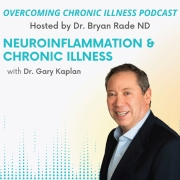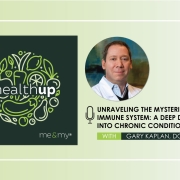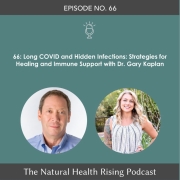7 Benefits of Stable Blood Sugar
Diabetes is a chronic medical condition characterized by high blood sugar levels as a result of your body’s inability to properly regulate insulin, the hormone responsible for controlling glucose levels. Diabetes is best managed with a proper diet, lifestyle changes, and in some cases, the use of medication such as insulin or oral hypoglycemic agents.
If you have Type 1 diabetes, your body does not produce insulin on its own. If you have Type 2 diabetes, your body doesn’t produce enough insulin or the cells become resistant to insulin’s effects. In both cases, this dysregulation of insulin levels can lead to periods of high and sometimes low blood sugar levels. This can negatively impact the body so maintaining stable blood sugar levels is essential for your overall health and well-being.
Kaplan Center’s approach to managing diabetes addresses all of the root causes that are driving your condition. In contrast to conventional medicine, our functional medicine approach emphasizes prevention through lifestyle and dietary modifications and promotes overall health and wellness. Please give us a call today, we can help.
Here are seven benefits of having a stable blood sugar
1 – Enhanced energy levels
When your blood sugar level is stable, your body can efficiently convert glucose into energy. This means you will be provided with a steady and constant energy supply throughout the day and reduce the amount of fatigue or sluggishness that you experience.
2 – Better weight management
It is important that you maintain a stable and healthy body weight with diabetes and having a stable blood sugar level can help. When your blood sugar remains steady, you’re less likely to experience intense hunger or cravings that can lead to overeating or making unhealthy food choices.
3 – Increased focus and concentration
Blood sugar imbalances can affect cognitive function, leading to difficulties in concentration and focus. In fact, Alzheimer’s disease, dementia, and cognitive impairment are now being dubbed by researchers as Type 3 Diabetes due to the strong link between insulin resistance and cognitive decline/impairment. Interestingly, this could also help explain why dementia patients always crave sweet things.
Because the brain is the most energy-demanding organ and uses one-half of all sugar (energy) in the body, stable blood sugar will not only help promote better brain function and improve mental clarity but will also help lower your risk of developing Alzheimer’s disease and dementia.
For more information on insulin resistance, its relationship with cognitive function, and strategies on how to stabilize your blood sugar, you can read the following articles by Dr. Lisa Lilienfield, “Pre-diabetes: Are You at Risk?” and “Addressing the Fear of Cognitive Decline & How to Be Proactive.”
4 – A reduction in the number of diabetes-related complications
Consistently high blood sugar levels are associated with long-term damage to various organs including the eyes, kidneys, heart, and nerves. By maintaining a stable blood sugar, your risk of these complications is reduced. This is important because the complications can be serious; complications include macular degeneration of the eyes, reduced kidney function, or issues affecting your nerves.
5 – Improved mood and mental well-being
Fluctuating blood sugar levels can lead to mood swings, irritability, and even anxiety. One study found that greater glycemic variability may be associated with a lower quality of life and negative moods. So, by maintaining stable blood sugar, you promote better emotional balance and overall mental well-being.
6 – Improved cardiovascular health
High blood sugar levels can damage your blood vessels and increase your risk of cardiovascular diseases such as heart attacks and strokes. A stable blood sugar can help you maintain a healthier cardiovascular system which reduces your risk of many life-threatening cardiovascular issues and heart disease.
7 – Enhanced overall health
Stable blood sugar levels can positively impact various aspects of your health such as supporting your immune function. This boosts your body’s ability to fight off infections and illnesses more effectively. Additionally, stable blood sugar is known to contribute to better sleep quality, hormonal balance, and overall longevity.
We are here for you, and we want to help.
Our goal is to return you to optimal health as soon as possible. To schedule an appointment please call: 703-532-4892 x2
References
https://hms.harvard.edu/news-events/publications-archive/brain/sugar-brain











